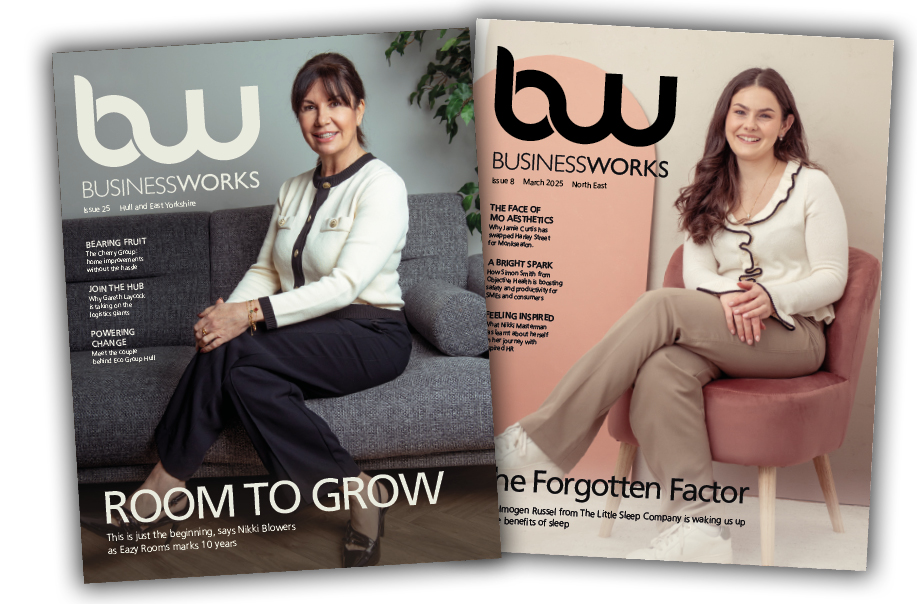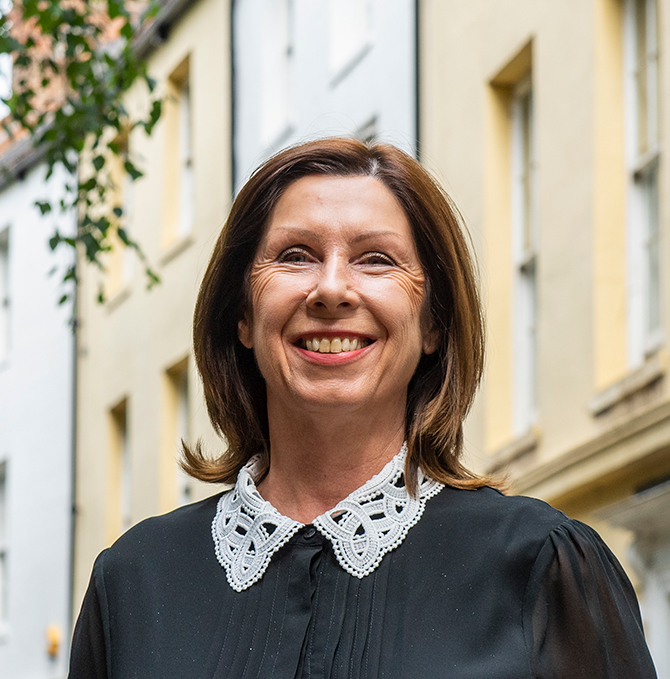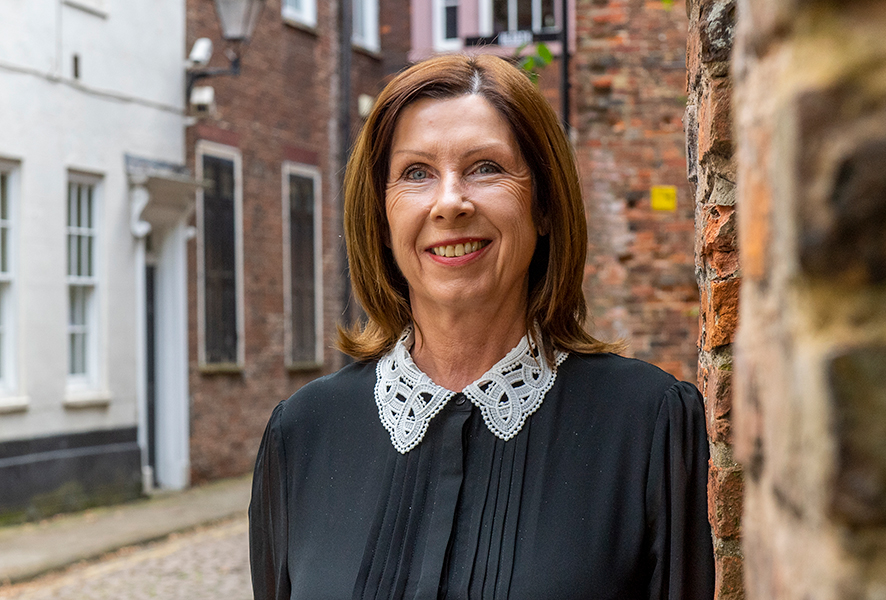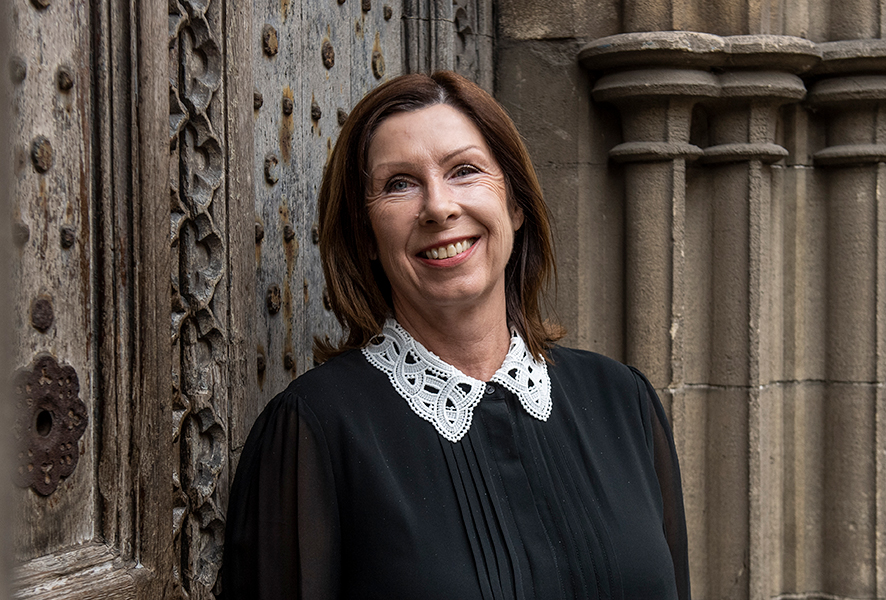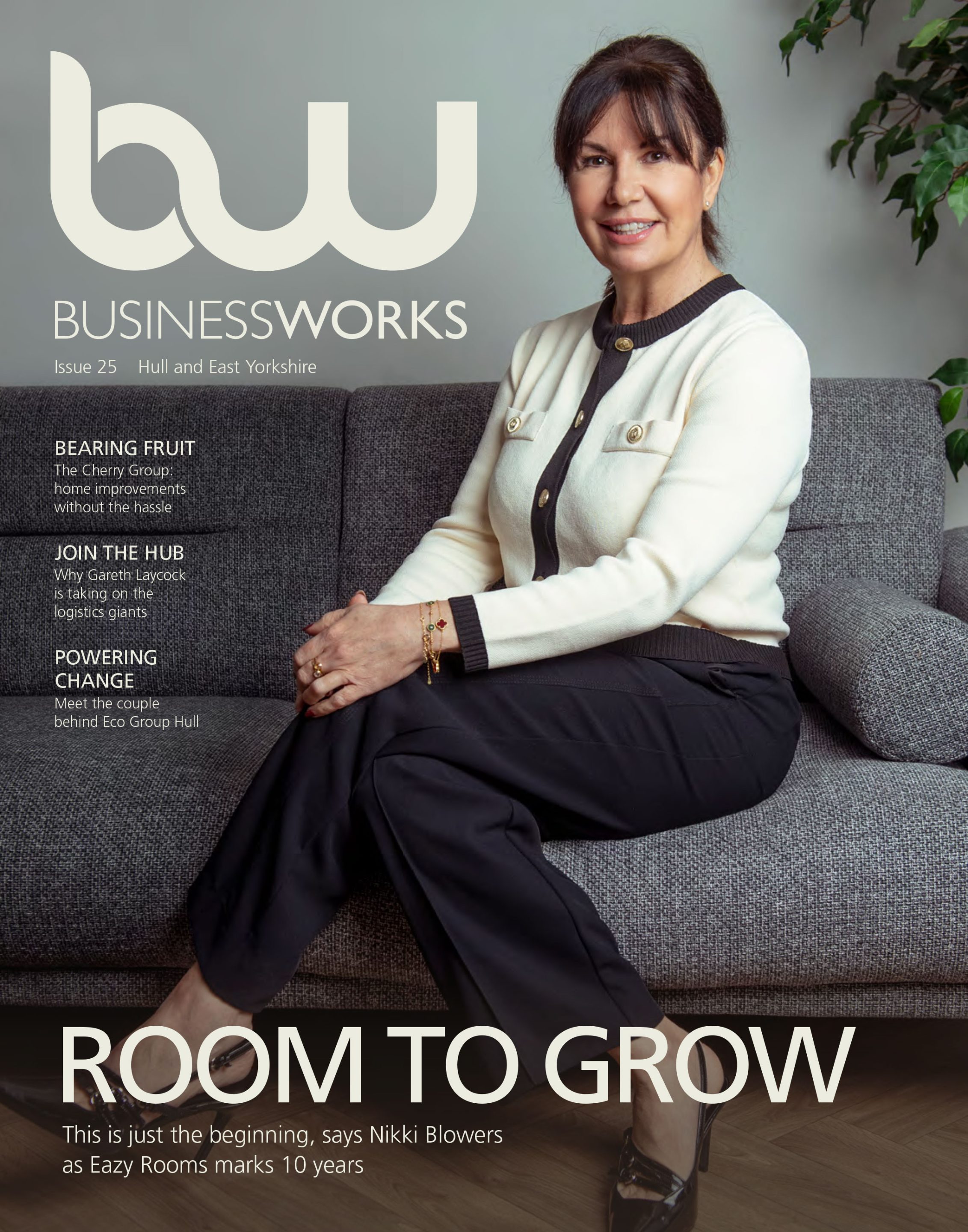Sam Hawcroft talks to Carolyn Johnson, the CEO of leading Hull-based interpreting company, Language is Everything…
Carolyn Johnson might be a police officer today, had a freak Outward Bound accident not forced her to reconsider her career aspirations.
Originally from Cumbria, she had moved down to London with a view to joining the Met, but when that didn’t work out, she found a role as a store detective for Miss Selfridge in Oxford Street – sparking a career in retail that she says she “absolutely loved”.
One day, while working at the branch in Slough, Carolyn discovered that “virtually everyone in the shop was stealing – and they were sacked on the spot”. She added: “I was lucky because, at the time, Miss Selfridge would only take on graduates to be managers and I was not a graduate – but they said, look, there’s no one left here, how do you fancy getting into retail management? So I said yes!”
She ended up managing stores in Knightsbridge before moving into security and audit for a time – but she missed retail, and ended up back as store manager in Slough.
An Iranian man who had founded his own linguistics company would come into Carolyn’s store on almost daily basis and try to talk her into working for him. “In the end,” she laughs, “I got so sick of him that I said yes.”
Back then – nearly 30 years ago – the company was “tiny”, with just four people. “I’d never used a computer before and I remember sitting at this desk and thinking, what earth am I going do with this?” says Carolyn. “But I just love learning – that’s my big thing. And to be honest, he wasn’t the best person to learn about business from, because he just had his own set of rules, which really involved spending whatever money came into the company. Eventually, it got to the point where we’d grown a bit, we had more staff, and it was either him or me, really, who was going to take it forward.”
He moved to Greece – which made up Carolyn’s mind to buy him out. She had intended to stay in Slough – but found it difficult to secure the sort of “passionate” people she wanted to build the company around, as, she says, it was one of those “full-employment” towns where someone could leave a job on a Friday and walk into another one the following Monday.
Carolyn was to discover Hull and East Yorkshire quite by accident. Her office manager at the time revealed that she had a boyfriend in Howden, and was planning to move north and live with him. “I really didn’t want to lose her,” says Carolyn. “She was just the best office manager. I thought about homeworking, which wasn’t really a thing then, and then in the end, I came up and had a look around, and I put an advert in the job centre in Goole for customer service people. We were just inundated with all these fantastic CVs from people who hadn’t really worked much, but they had loads of qualifications. And I never looked back.”
So Carolyn took the plunge and moved up to Howden, initially renting what used to be a poodle parlour, before buying the building and converting it into offices. She kept the Slough office open for a time, having offered staff there the opportunity to move north, but eventually made East Yorkshire the company’s sole base.
Carolyn became involved with the newly emerging World Trade Centre in Hull, and decided to set up a second Language is Everything office in the city. And in 2011, she led “what has to be the most catastrophic management buyout in history”, she says.
Her two fellow directors had wanted to sell up to a large competitor. Carolyn knew that the company would be stripped of its assets, and redundancies would follow. The process was fraught, to say the least. “It went on for so long and I was naive. It was the first time I’d done something like that properly, and I was very badly advised. It nearly killed me. By now, we’d moved down the bottom of Queen Street, and I was kind of running the place thinking, well, I’m not going to have a job soon because this isn’t going to happen. And then just before Christmas in 2011, I got the money. I decided that I would move the guys from Howden to Hull… and that was an even bigger mistake.”
Asking people to come half an hour down the M62 was a step too far for many of them, and there followed a few “awful years, just fighting all the time to survive”, Carolyn says. It was a lonely place, because “People don’t want to know people that are in trouble. People like good news. They like to mix with people who are doing well. I think I just sort of got myself into a state of mind that every day when I walked in and people said, how are you? I just said, fine, thank you, instead of saying, no I’m not really fine, and I haven’t slept for three weeks.”
It was also around this time that Carolyn was made an MBE for services to business in Yorkshire and the Humber – which, she says, has motivated her even more towards making the company a success and putting the region on the map. “I have no idea who put me forward for it! Obviously I was very proud, as this is a place I absolutely adore and I’d always want to play my part in ensuring it gets the best deal possible.”
The past decade has been about rebuilding – and what a turnaround. The company has moved with the times, capitalising on the advances in technology to offer the very best and latest in translation services, from its origins in face-to-face interpreting and a basic hotline service.
“Telephone interpreting didn’t really start until the late 1990s,” says Carolyn, “and I can always remember in Slough we had one telephone and it was on a shelf, and if it rang, there was a bit of a scramble. And when we moved to Howden, we still had rows of phones on shelves. I think we’ve turned the tables from face-to-face interpreting being the biggest service that we offer, and telephone interpreting has certainly made life much easier.”
Now, on-demand phone interpreting means that, for example, if a GP has a patient whose first language is not English, they can call Language is Everything, and within about a minute, they will be connected to someone who can interpret. It’s a service that is of great help to not only doctors, but solicitors and charities such as Macmillan and the Stroke Association.
Covid, of course, changed the nature of face-to-face interpreting – and also tested Carolyn’s leadership skills, but she turned the pandemic to her advantage. Because of the nature of the work relying on advanced telephony, homeworking wasn’t an option for the head office staff, so Carolyn swiftly introduced a series of measures including extra office space, installing air filtration systems and ensuring those who needed to isolate could do so on full pay.
Demand for telephone and video interpreting skyrocketed, and the company’s turnover doubled to more than £2.1 million in the 2020-21 financial year, during which it provided more than 2.2 million minutes of on-demand telephone interpreting and connected 124,000 calls.
Many of the service users are in desperate need, at “the very bottom of the tree of life”, says Carolyn, such as asylum seekers and refugees who may have escaped horrifying circumstances, or people receiving distressing news from a health professional.
“It’s really important to me that those people still get the service that everybody else should get. So we work very hard to ensure that we never put the phone down on someone saying, sorry, we can’t do it. It might be we have to call them back in a couple of hours if it’s a very rare language. And there can sometimes be people who don’t want anyone to speak their language because they might feel that they are going to be in trouble. It can be quite an interesting journey to find out what language somebody really speaks.”
Carolyn is just as passionate about her 30-strong team and as the 300 or so translators on the books – many of whom originally came to the UK as refugees – as she is about giving a voice to the marginalised. Listed among the company’s “values” on its website is this statement: “Our customer service team are people, not agents – and our interpreting and translation teams have names, not numbers.”
And, while AI language tools have their uses, there is no cutting corners at Language is Everything. Where some competitors might use automation, there’s simply no substitute for a real-life interpreter in what are usually testing times for those who need the service, Carolyn says. “Things like Google Translate are fine and I use them on holiday to work out what I’m going to have for dinner – but the types of customers that we have, they want the personal touch. We don’t put the phone down until we make sure that everybody understands each other. A lot of the people we’re providing our services for are those who have come from war-torn countries and may have serious mental health issues – and AI is just not going to do much for them.”
Carolyn acknowledges that she’s operating in a competitive market – but this “makes you want to work harder to stay at the top of your game”. And she has no plans to go anywhere, anytime soon – quite the opposite. Her goal in the coming years is to evolve with emerging technology to future-proof the business for new generations of translators working in new markets.
“We’ve been through some tricky times, but I’m in this for the long haul,” she says. “I think it’s really important to have a team of people around you that, if something did happen do you, could take over the run of the business. I’ve tried to make it as simple as possible because I think life should be as simple as possible. Although the business sounds quite complicated because we’re dealing with things that are on demand and lots of different languages, it’s actually pretty simple to operate – and if you’ve got the right people that have the same values and the same passion to succeed, I think as long as there’s a need for what we do, we’ll always be here.”


